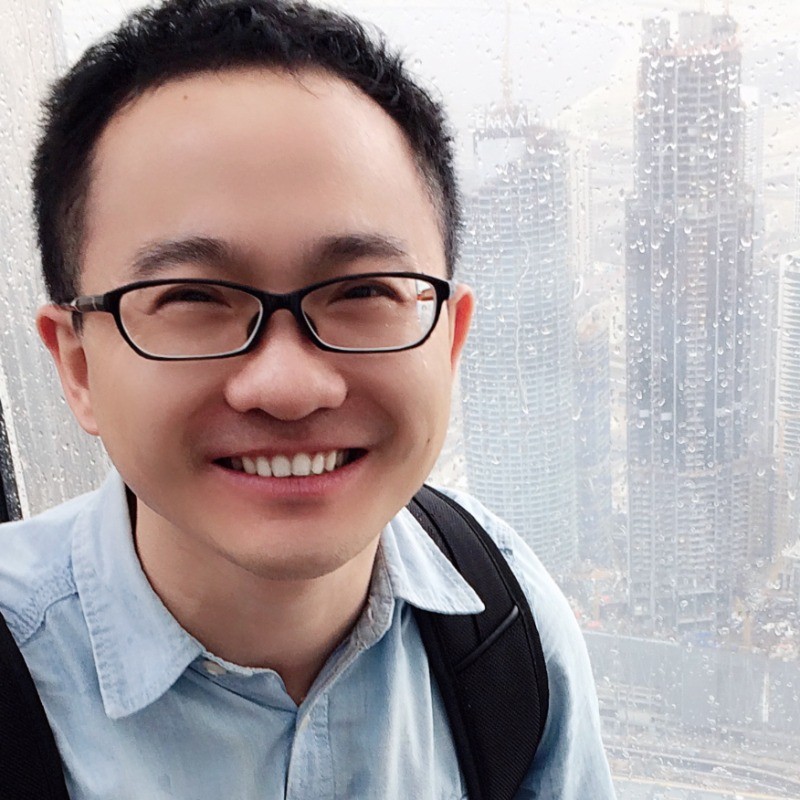
Shuo Chen, Ph.D.


Dr. Shuo Chen received his bachelor’s degree in Chemical Engineering from Tsinghua University, China, followed by a PhD in Chemistry from the University of Tokyo. His strong interest in neuroscience stemmed from his PhD work in the design and synthesis of voltage-responsive molecular assemblies, which led him to consider how molecules process electric signals, generate logic flow and, more amazingly, produce cognition in the brain. He then embarked on a journey towards the neuroscience of learning and memory at RIKEN Center for Brain Science. Using his knowledge in chemistry, he developed a minimally invasive neuromodulation technology called “near-infrared (NIR) upconversion optogenetics”, where upconversion nanoparticles are used to convert tissue-penetrating NIR to visible light for optogenetically stimulating deep brain neurons. In a separate project, by leveraging optogenetic tools and multielectrode in vivo electrophysiological recordings, he identified the supramammillary nucleus as a previously unknown hypothalamic novelty hub that modulates hippocampal memory. In his following postdoc work at NYU, supported by a NIH K99 award and a BBRF grant, Dr. Chen extended his work to study memory dysfunction in Alzheimer’s disease (AD) by deciphering its circuit mechanism and developing next-generation therapies.
Dr. Chen’s research has two areas of focus: (i) to study the neural mechanism of memory, especially hippocampal-dependent episodic memory, and (ii) to develop new tools – chemical and optical – for neuroscience. These goals are complementary, because to disambiguate the connections and functions of the normal or diseased brain requires new and improved technologies that enable unprecedented recording and manipulation of neural activity.
Select Publications
- Chen S, He LM, Huang AJY, Boehringer R, Robert V, Wintzer ME, Polygalov D, Weitemier AZ, Tao YQ, Gu MX, Namiki K, Hama H, Therreau L, Hioki H, Miyawaki A, Piskorowski RA, McHugh TJ. A hypothalamic novelty signal modulates hippocampal memory. Nature. 586:270–274 (2020).
- Chen S, McHugh TJ. Further-reaching optogenetics. Nature Biomedical Engineering. 4:1028–1029 (2020).
- Chen S. Near-infrared deep brain stimulation in living mice. Methods in Molecular Biology. 2173:71-82 (2020).
- Chen S, Wu J, Cai A, Gonzalez N, Yin R. Towards minimally invasive deep brain stimulation and imaging: A near-infrared upconversion approach. Neuroscience Research. 152:59–65 (2020).
- Chen S. Optical modulation goes deep in the brain. Science. 365:456–457 (2019).
- Zeng X*, Chen S*, Weitemier A, Han S, Blasiak A, Prasad A, Zheng K, Yi Z, Luo B, Yang IH, Thakor N, Chai C, Lim KL, McHugh TJ, All AH, Liu X. Visualization of intra-neuronal motor protein transport through upconversion nanoscopy. Angewandte Chemie International Edition. 58:9262–9268 (2019).
- Chen S, Weitemier AZ, Zeng X, He LM, Wang XY, Tao YQ, Huang AJY, Hashimotodani Y, Kano M, Iwasaki H, Parajuli KL, Okabe S, Loong Teh DB, All AH, Tsutsui-Kimura I, Tanaka KF, Liu X, McHugh TJ. Near-infrared deep brain stimulation via upconversion nanoparticle-mediated optogenetics. Science. 359:679–684 (2018).
- Middleton SJ, Kneller EM, Chen S, Ogiwara I, Montal M, Yamakawa K, McHugh TJ. Altered hippocampal replay is associated with memory impairment in mice heterozygous for the Scn2a gene. Nature Neuroscience. 21:996–1003 (2018).
- Chen S, Itoh Y, Masuda T, Shimizu S, Zhao J, Ma J, Nakamura S, Okuro K, Noguchi H, Uosaki K, Aida T. Subnanoscale hydrophobic modulation of salt bridges in aqueous media. Science. 348:555–559 (2015).

